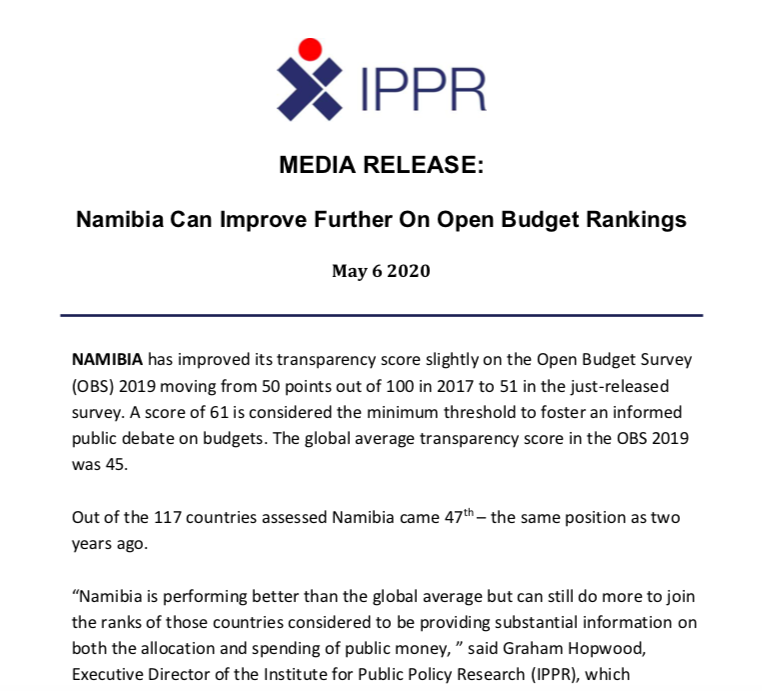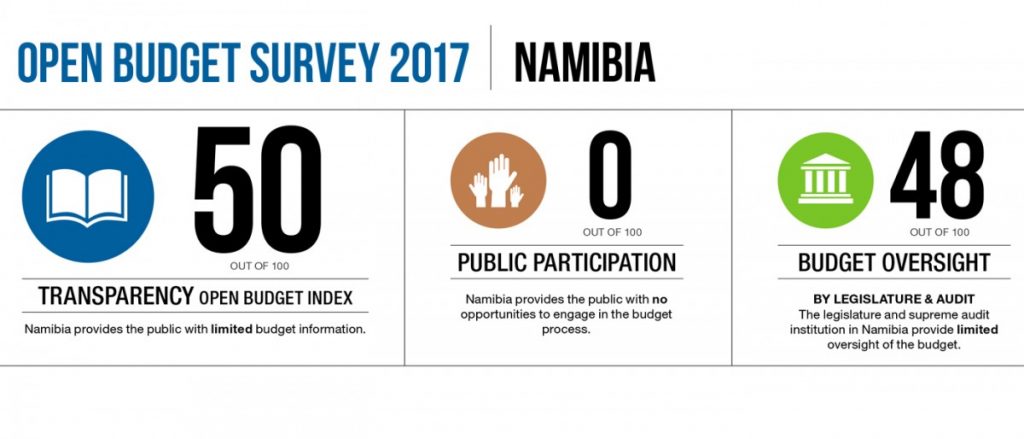Keep Your Eyes On The Money – Fiscal Oversight in Namibia
The launch of a new research report on public participation and the work of the Office of the Auditor-General on Tuesday October 5 from 10h30 to 12h00 at the House of Democracy, 70-72 Dr Frans Indongo Street, Windhoek. Please RSVP to Ndeshi at info@ippr.org.na
Namibia in the Open Budget Survey

Namibia has improved the transparency and availability of its budget information slightly but offers no formal opportunities for the public to give their views on budget allocations and the execution of spending plans.
How to Participate in Government

There are three branches of government: the legislative (parliament), the judiciary (courts) and the executive (parliament). The constitution is the supreme law of the country, which contains principles that keep the branches of government from interfering with each other, as each branch is meant to function independently of the other.
The public can participate in some of the actions of these branches, but only up to a certain point. Firstly, of course, Namibian citizens have a constitutional right to vote in National Elections every five years, and therefore choose the members of the National Assembly. In this way, they are able to influence the composition of the legislature and the executive, as Cabinet members are traditionally chosen from the National Assembly.
The Open Budget Index 2017: Namibia’s Performance

Namibia moved up slightly in the new Open Budget Index. Read more here
Political and Social Participation Among Namibia’s Youth
An IPPR report on Political and Social Participation Among Namibia’s Youth

